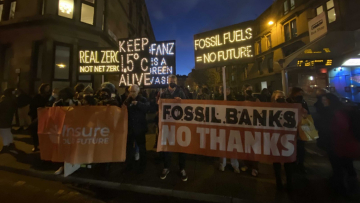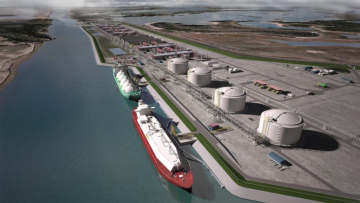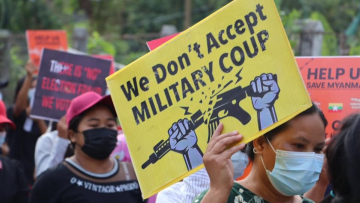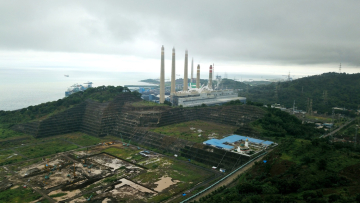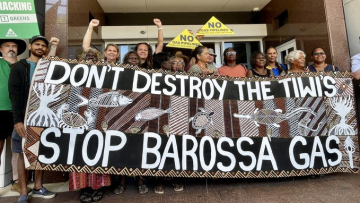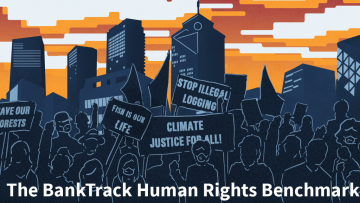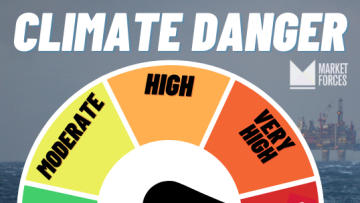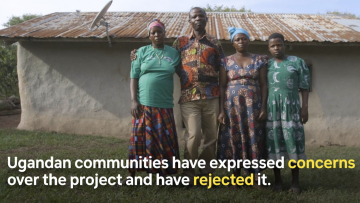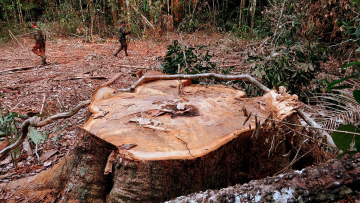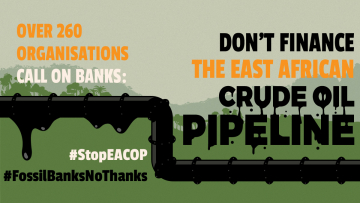
Active
This profile is actively maintained
Active
This profile is actively maintained| Website | http://www.uobgroup.com/ |
| Headquarters |
80 Raffles Avenue, UOB Plaza 1
048624
Singapore
|
| CEO/chair |
Wee Ee Cheong Deputy Chairman and Chief Executive Officer |
| Supervisor | |
| Ownership |
listed on Singapore Stock Exchange (SGX)
UOB Group's shareholder structure can be accessed here. |
United Overseas Bank (UOB) is a Singaporean bank which was established in 1935. Over the years it has acquired several smaller banks. Currently, it operates in 19 countries in Asia, Western Europe and North America and provides the following services: personal financial, private banking, corporate banking, investment banking, corporate finance, capital market activities, treasury services, futures broking, asset management, venture capital management, insurance and stockbroking services.
UOB's most important sustainability commitments can be found at the website sections listed below.
Links
United Overseas Bank (UOB) is linked to a number of companies and projects that BankTrack considers controversial (so called Dodgy Deals), e.g. as a current or past financier or through an expression of interest. The profiles below provide more details on the nature of United Overseas Bank (UOB)'s link to these deals.
UOB does not operate a complaints or grievances mechanism for individuals or communities that might have been affected by the bank's finance.
UOB is an Equator Principles signatory. While the Equator Principles have no official grievance mechanism, complaints relating to this bank's financing of Equator Principles projects can be filed through our own website www.equator-complaints.org.
This page evaluates United Overseas Bank (UOB)'s responses to instances of alleged human rights violations linked to its finance, raised by civil society organisations. It is not intended to be exhaustive, but covers selected impacts raised by BankTrack and other civil society partners since 2016. For the full scoring methodology, see here. For more information about BankTrack's evaluation of bank responses to human rights impacts, see the 2021 report "Actions speak louder: assessing bank responses to human rights violations".
A PHP Error was encountered
Severity: Warning
Message: Division by zero
Filename: bankprofile/response_tracking.php
Line Number: 200
Backtrace:
File: /home/btwebhost/www/btci3/application/views/sections/bankprofile/response_tracking.php
Line: 200
Function: _error_handler
File: /home/btwebhost/www/btci3/application/helpers/easy_helper.php
Line: 366
Function: view
File: /home/btwebhost/www/btci3/application/views/sections/bankprofile/main.php
Line: 270
Function: lv
File: /home/btwebhost/www/btci3/application/libraries/sections/Bankprofile.php
Line: 531
Function: view
File: /home/btwebhost/www/btci3/application/controllers/Main.php
Line: 331
Function: content
File: /home/btwebhost/www/btci3/index.php
Line: 321
Function: require_once
A PHP Error was encountered
Severity: Warning
Message: Division by zero
Filename: bankprofile/response_tracking.php
Line Number: 209
Backtrace:
File: /home/btwebhost/www/btci3/application/views/sections/bankprofile/response_tracking.php
Line: 209
Function: _error_handler
File: /home/btwebhost/www/btci3/application/helpers/easy_helper.php
Line: 366
Function: view
File: /home/btwebhost/www/btci3/application/views/sections/bankprofile/main.php
Line: 270
Function: lv
File: /home/btwebhost/www/btci3/application/libraries/sections/Bankprofile.php
Line: 531
Function: view
File: /home/btwebhost/www/btci3/application/controllers/Main.php
Line: 331
Function: content
File: /home/btwebhost/www/btci3/index.php
Line: 321
Function: require_once
A PHP Error was encountered
Severity: Warning
Message: Division by zero
Filename: bankprofile/response_tracking.php
Line Number: 217
Backtrace:
File: /home/btwebhost/www/btci3/application/views/sections/bankprofile/response_tracking.php
Line: 217
Function: _error_handler
File: /home/btwebhost/www/btci3/application/helpers/easy_helper.php
Line: 366
Function: view
File: /home/btwebhost/www/btci3/application/views/sections/bankprofile/main.php
Line: 270
Function: lv
File: /home/btwebhost/www/btci3/application/libraries/sections/Bankprofile.php
Line: 531
Function: view
File: /home/btwebhost/www/btci3/application/controllers/Main.php
Line: 331
Function: content
File: /home/btwebhost/www/btci3/index.php
Line: 321
Function: require_once
A PHP Error was encountered
Severity: Warning
Message: Division by zero
Filename: bankprofile/response_tracking.php
Line Number: 220
Backtrace:
File: /home/btwebhost/www/btci3/application/views/sections/bankprofile/response_tracking.php
Line: 220
Function: _error_handler
File: /home/btwebhost/www/btci3/application/helpers/easy_helper.php
Line: 366
Function: view
File: /home/btwebhost/www/btci3/application/views/sections/bankprofile/main.php
Line: 270
Function: lv
File: /home/btwebhost/www/btci3/application/libraries/sections/Bankprofile.php
Line: 531
Function: view
File: /home/btwebhost/www/btci3/application/controllers/Main.php
Line: 331
Function: content
File: /home/btwebhost/www/btci3/index.php
Line: 321
Function: require_once
A PHP Error was encountered
Severity: Warning
Message: Division by zero
Filename: bankprofile/response_tracking.php
Line Number: 223
Backtrace:
File: /home/btwebhost/www/btci3/application/views/sections/bankprofile/response_tracking.php
Line: 223
Function: _error_handler
File: /home/btwebhost/www/btci3/application/helpers/easy_helper.php
Line: 366
Function: view
File: /home/btwebhost/www/btci3/application/views/sections/bankprofile/main.php
Line: 270
Function: lv
File: /home/btwebhost/www/btci3/application/libraries/sections/Bankprofile.php
Line: 531
Function: view
File: /home/btwebhost/www/btci3/application/controllers/Main.php
Line: 331
Function: content
File: /home/btwebhost/www/btci3/index.php
Line: 321
Function: require_once
Banks and Climate
Partner organisation Reclaim Finance tracks the coal, oil and gas policies of financial institutions, including banks, in their Coal Policy Tool (CPT) and the Oil and Gas Policy Tracker (OGPT). BankTrack works closely with Reclaim Finance and endorses their policy assessments. Find further details on their assessment of UOB's fossil fuel policy below.
Banks and Human Rights
BankTrack assessed United Overseas Bank in its 2022 Human Rights Benchmark Asia, where it achieved 1.5 points out of 14 and was ranked as a 'laggard'. More information is detailed in the "Accountability" section of this profile.
Human Rights Benchmark Asia 2022
Banks and Nature
United Overseas Bank’s policies for forest-risk sectors (beef, soy, palm oil, pulp and paper, rubber and timber) have been assessed by the Forests & Finance coalition, achieving an overall score of 5.8 out of 10 and ranking it as a front runner. UOB achieved a score of 0 out of 10 specifically for its policies related to the beef sector and 6.8 out of 10 for its policies related to the palm oil sector. Between 2016 and 2022, UOB provided USD 1,558 million in credit to companies operating in these forest-risk sectors and held investments amounting to USD 5 million as of 2022. For more information, see the links below.
Forest & Finance Policy Assessment 2022: Overall scores
A bank can obtain a total of 10 points for the quality of its policies. The total score is based on their scores per sector, weighted against their financing and investment for each sector. For further details on this see here. Based on their overall score, banks are then classified as Laggards, Followers, Front runners or Leaders, as follows:
Forest & Finance Policy Assessment 2022: Beef
A bank can obtain a total of 10 points for the quality of its beef policy. The total score is based on their scores per sector, weighted against their financing and investment for each sector. For further details on this see here. Based on their overall score, banks are then classified as Laggards, Followers, Front runners or Leaders, as follows:
Forest & Finance Policy Assessment 2022: Palm Oil
A bank can obtain a total of 10 points for the quality of its palm oil policy. The total score is based on their scores per sector, weighted against their financing and investment for each sector. For further details on this see here. Based on their overall score, banks are then classified as Laggards, Followers, Front runners or Leaders, as follows:
Tracking the Net Zero Banking Alliance
UOB is a member of the Net Zero Banking Alliance (NZBA) and has therefore committed to reduce its financed emissions to net zero by 2050; within 18 months of joining the alliance set interim targets for 2030 (or sooner) for high emission priority sectors, and within 36 months set further sector targets; set new intermediary targets every 5 years from 2030 onwards; annually publish data on emissions and progress against a transition strategy including climate-related sectoral policies; and take a robust approach to the role of offsets in transition plans. BankTrack track's implementation of these commitments in the NZBA compliance tracker.
Banks and Steel
Partner organisation Reclaim Finance’s 2023 report on metallurgical coal financing showed that United Overseas Bank provided US$ 1.9 billion in loans and underwriting to developers of new metallurgical coal between 2016 and 2022. Find further details on United Overseas Bank’s metallurgical coal financing and and how it compares to other large banks globally in the report.
Reclaim Finance tracks the metallurgical coal policies of financial institutions, including banks, in their Coal Policy Tool. BankTrack works closely with Reclaim Finance and endorses their policy assessments. Find further details on their assessment of United Overseas Bank’s metallurgical coal policy below.
Banks and Russian Aggression in Ukraine
BankTrack is keeping track of the public response of the United Overseas Bank (UOB) to Russia's illegal invasion of Ukraine. United Overseas Bank (UOB) did not publicly condemn the war. United Overseas Bank (UOB) is scaling back its operations in Russia. We consider its exposure to Russia as limited. For further details, see the table linked below.


